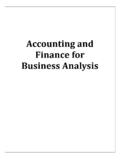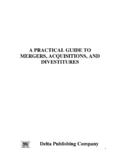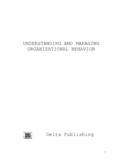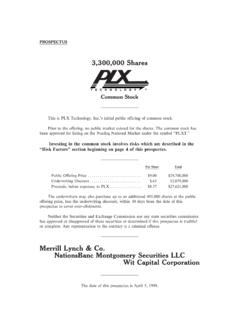Transcription of Accounting Changes and Error Corrections - Apex …
1 1 Accounting Changes and Error Corrections 2 Accounting Changes and Error Corrections Copyright 2014 by DELTACPE LLC All rights reserved. No part of this course may be reproduced in any form or by any means, without permission in writing from the publisher. The author is not engaged by this text or any accompanying lecture or electronic media in the rendering of legal, tax, Accounting , or similar professional services. While the legal, tax, and Accounting issues discussed in this material have been reviewed with sources believed to be reliable, concepts discussed can be affected by Changes in the law or in the interpretation of such laws since this text was printed. For that reason, the accuracy and completeness of this information and the author's opinions based thereon cannot be guaranteed.
2 In addition, state or local tax laws and procedural rules may have a material impact on the general discussion. As a result, the strategies suggested may not be suitable for every individual. Before taking any action, all references and citations should be checked and updated accordingly. This publication is designed to provide accurate and authoritative information in regard to the subject matter covered. It is sold with the understanding that the publisher is not engaged in rendering legal, Accounting , or other professional service. If legal advice or other expert advice is required, the services of a competent professional person should be sought. -From a Declaration of Principles jointly adopted by a committee of the American Bar Association and a Committee of Publishers and Associations.
3 All numerical values in this course are examples subject to change . The current values may vary and may not be valid in the present economic environment. Course Description A company s financial statements sometimes report significantly different results from year to year. This may be due to Changes in economic circumstances, but it may also be due to Changes in Accounting methods or Corrections of errors in recording past transactions. Changing the Accounting method used can have dramatic impact on a company s financial statements. This course covers the Accounting , reporting, and disclosures associated with Changes in Accounting principles (method), estimates, and reporting entities as stipulated in ASC 250-10-05, Accounting Changes and Error Corrections : Overall (FAS-154, Accounting Changes and Error Corrections A Replacement of APB Opinion No.)
4 20 and FASB Statement No. 3). Field of Study Accounting Level of Knowledge Basic to Intermediate Prerequisite Basic Accounting Advanced Preparation None Table of Contents Accounting Changes and Error Corrections .. 1 Learning Objectives: .. 1 change in Accounting Principle (Method) .. 3 change in Accounting Estimate .. 7 change in Reporting Entity .. 11 Review Questions - Section 1 .. 13 Error Corrections .. 16 Types of errors .. 20 Illustrative Example of Error correction .. 22 Required Disclosure for Error Restatements .. 30 Summary of Guidelines for Accounting Changes and errors .. 34 Types of Accounting errors .. 36 ASC, FASB, and Difference between GAAP and IFRS .. 37 Review 39 Glossary .. 42 44 Appendix Annual Report References .. 45 Review Question Answers .. 53 1 Accounting Changes and Error Corrections Learning Objectives: After studying this section you will be able to: 1.
5 Recognize the different types of Accounting Changes . 2. Identify the Accounting Changes and disclosures necessary for Changes in inventory method 3. Recognize a change in a reporting entity and the effect of a change in Accounting estimate. 4. Identify examples of a correction of an Error in previous financial statements and analyze the effect of errors . A company s financial statements sometimes report significantly different results from year to year. This may be due to Changes in economic circumstances, but it may also be due to Changes in Accounting methods or Corrections of errors in recording past transactions. Changing the Accounting method used can have dramatic impact on a company s financial statements. Because of this impact, one can argue that Accounting Changes detract from the informational characteristics of compatibility and consistency.
6 So why are these Accounting Changes made? The main reason for these Changes can be summarized as follows: 1. Due to Changes in economic conditions, companies may need to change methods of Accounting to more clearly reflect the current economic situation. 2. A company, as a result of experience or new information, may change its estimates of revenues or expenses for example, the estimate of uncollectable accounts receivable or the estimated service lives of depreciable assets. 2 3. Accounting standard-setting bodies may require the use of new Accounting method or principle, such as new reporting requirements for postretirement benefits. 4. Management may be pressured to report profitable performance. Clever Accounting Changes can result in higher net income, thereby reflecting favorable on management.
7 Whatever the reason, accountants must keep the qualitative characteristic of usefulness in mind. They must determine whether the reasons for Accounting Changes are appropriate and then how best to report the Changes to facilitate understanding of the financial statements. The detection of errors in Accounting from past transactions presents a similar problem. The errors must be corrected and properly appropriate disclosures made so that the readers of the financial statements will clearly understand what happened. The purpose of this course is to discuss the different types of Accounting Changes and Error Corrections and the related Accounting procedures that should be used. This course covers the Accounting , reporting, and disclosures associated with Changes in Accounting principles (method), estimates, and reporting entities as stipulated in ASC 250-10-05, Accounting Changes and Error Corrections : Overall.
8 APB Opinion No. 20 has standardized the manner in which Accounting Changes are reported. Opinion No. 20 classifies Accounting Changes as follows: 1. change in Accounting Principle. A change from one generally accepted Accounting principle (GAAP) to another generally accepted Accounting principle. 2. change in Accounting Estimate. A change that occurs as the result of new information or as additional experience is acquired. An example is a change in the estimate of the useful lives of depreciable assets. 3. change in Reporting Entity. A change from reporting as one type of entity to another type of entity, for example, changing specific subsidiaries comprising the group of companies for which consolidated financial statements are prepared. correction of an Error in previously issued financial statements is not an Accounting change .
9 Such errors include mathematical mistakes, mistakes in the application of Accounting principles, or oversight or misuse of facts that existed at the time financial statements were prepared. If an Accounting change is immaterial in the current year but is expected to be significant in future years, it should be completely disclosed in the year of change . This course also discusses how to present and disclose Corrections of errors made in a prior year. 3 change in Accounting Principle (Method) There is an underlying presumption that an Accounting principle, once adopted, should not be changed for similar events and transactions. A change in principle may be caused by new events, changing conditions, or additional information or experience. As per ASC 250-10-55-1, Accounting Changes and Error Corrections : Overall, a change in the composition of the cost factors in valuing inventory represents an Accounting change in principle and must be footnoted as to why it is preferred.
10 ASC 250-10-05-1 through 05-3 requires retrospective application ( , the application of a different Accounting method to previous years as if that new method had always been used) to prior years' financial statements of Changes in Accounting principle, unless it is impractical to ascertain either the period-specific impact or the cumulative effect of the change . If it is impractical to do so, the newly adopted Accounting principle must be applied to the beginning balances of assets or liabilities of the earliest period for practical retrospective application. Further, a corresponding adjustment must be made to the beginning balance of retained earnings (or other appropriate equity components or net assets) for that period (it is not to be reported in the income statement).














